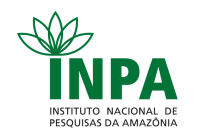Corpo Discente - Egressos
Simone Carvalho Sangi
| Título | CARACTERIZAÇÃO E POTENCIAL DE MOLÉCULAS BIOATIVAS PRESENTES EM PLANTAS DE Piper PARA O CONTROLE DE FITONEMATOIDES DO GÊNERO Meloidogyne EM Coffea canephora | ||||||||||||||||||||||||
| Data da Defesa | 29/02/2024 | ||||||||||||||||||||||||
| Download | Visualizar a Tese(4.13MB) | ||||||||||||||||||||||||
Banca
| |||||||||||||||||||||||||
| Palavras-Chaves | Controle alternativo; Meloidogyne incognita; café; extratos botânicos. | ||||||||||||||||||||||||
| Resumo | Os nematoides pertencem ao gênero Meloidogyne e são amplamente conhecidos por causarem danos às culturas de importância econômica. Entre esses nematoides, a espécie M. incognita se destaca devido à sua grande capacidade de infestar uma variedade de plantas. Embora existam estratégias adotadas como medidas de controle da população de fitonematoides no campo, o seu uso em culturas formadas é bastante limitado, o que faz dos nematicidas praticamente a única opção para combater o problema. Diante da dificuldade encontrada no controle desses nematoides torna-se necessária a busca por compostos químicos provenientes de diferentes fontes naturais, que apresentem potencial eficaz no controle de nematoides e não tóxicos para organismos não alvos. Assim o presente trabalho teve como objetivo avaliar o efeito, in vitro e in vivo, de extratos e frações de P. hispidum, em diferentes concentrações, contra o fitonematoide M. incognita. Para avaliação in vitro os extratos vegetais foram preparados utilizando-se suas frações orgânica e aquosa. Para avaliação foram preparados extratos aquosos e alcoólicos, obtidos a partir de materiais secos de folhas, talos e inflorescências. As variáveis avaliadas nos testes in vitro foram: o número de ovos (NO), juvenis (J2) eclodidos móveis e imóveis (JMI), ambos avaliados no décimo sexto dia. Diferentes partes da planta de Piper hispidum como folhas, talos e inflorescências tiveram efeito nematicida contra o Meloidogyne incognita. Avaliação in vivo foi conduzida na casa de vegetação da Embrapa Rondônia em Porto Velho. Nas avaliações feitas foram consideradas as seguintes variáveis: o número de galhas por grama de raízes (NG), o número de ovos (NO), a massa seca do sistema radicular (PSSR) e a massa seca da parte aérea (PSPA). A aplicação de extratos vegetais diretamente no solo pode diminuir a quantidade de ovos e galhas nas raízes se comparados ao controle negativo. Os resultados obtidos indicam a importância de estudos com produtos naturais como fonte de controle de fitonematóides de importância agrícola. | ||||||||||||||||||||||||
| Abstract | Nematodes belong to the genus Meloidogyne and are widely known for causing damage to crops of economic importance. Among these nematodes, the species M. incognita stands out due to its great capacity to infest a variety of plants. Although there are strategies adopted as measures to control the phytonematode population in the field, their use in established crops is quite limited, which makes nematicides practically the only option to combat the problem. Given the difficulty encountered in controlling these nematodes, it is necessary to search for chemical compounds from different natural sources, which have effective potential in controlling nematodes and are non-toxic to non-target organisms. Therefore, the present work aimed to evaluate the effect, in vitro and in vivo, of extracts and fractions of P. hispidum, in different concentrations, against the phytonematode M. incognita. For in vitro evaluation, plant extracts were prepared using their organic and aqueous fractions. For evaluation, aqueous and alcoholic extracts were prepared, obtained from dry materials of leaves, stems and inflorescences. The variables evaluated in the in vitro tests were: the number of eggs (NO), mobile and immobile hatched juveniles (J2) (JMI), both evaluated on the sixteenth day. Different parts of the Piper hispidum plant such as leaves, stems and inflorescences had a nematicidal effect against Meloidogyne incognita. In vivo evaluation was conducted in the Embrapa Rondônia greenhouse in Porto Velho. In the evaluations carried out, the following variables were considered: the number of galls per gram of roots (NG), the number of eggs (NO), the dry mass of the root system (PSSR) and the dry mass of the aerial part (PSPA). The application of plant extracts directly to the soil can reduce the number of eggs and galls on the roots compared to the negative control. The results obtained indicate the importance of studies with natural products as a source of control of phytonematodes of agricultural importance. | ||||||||||||||||||||||||
Parceiros

























